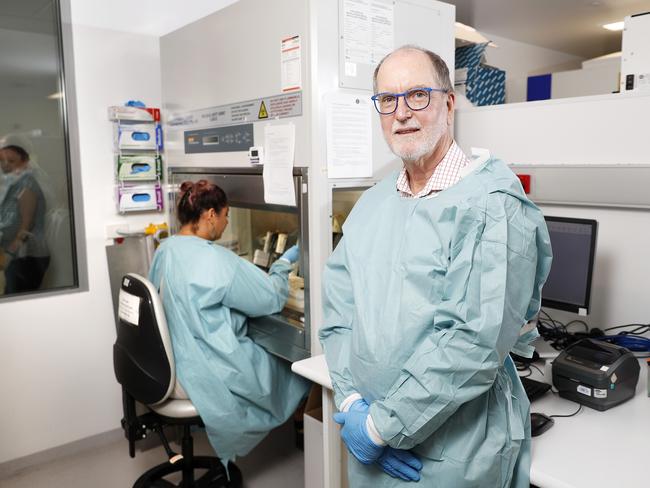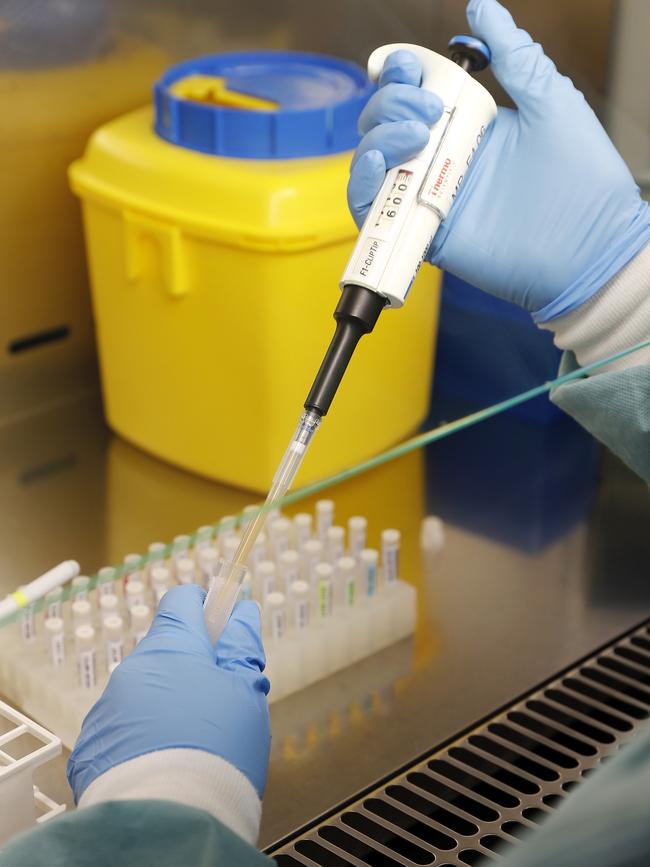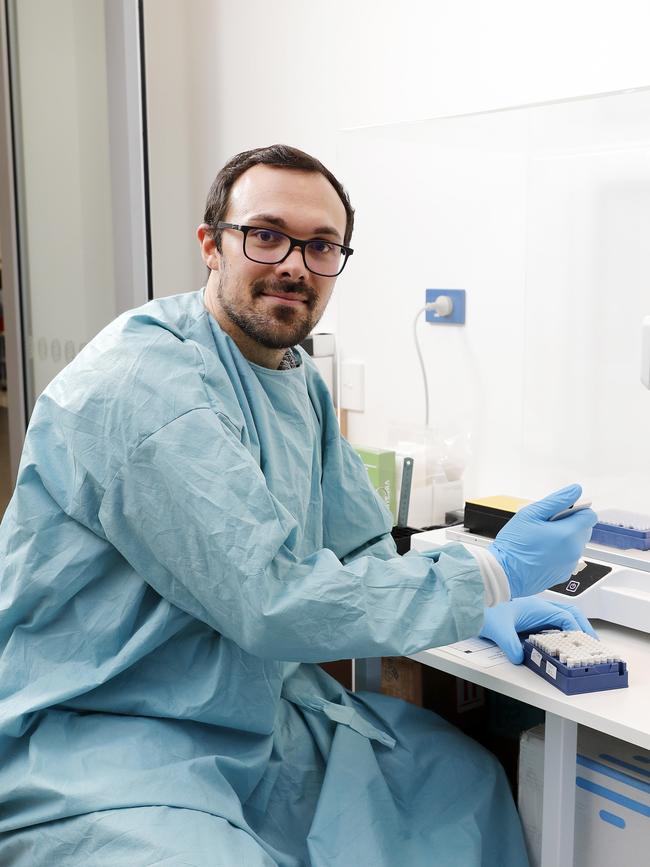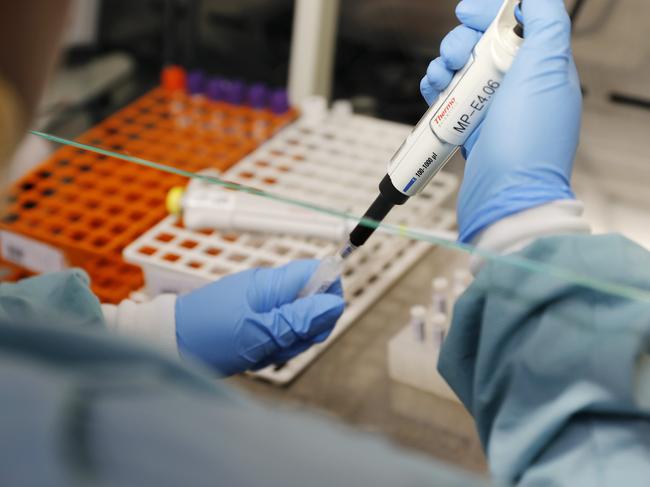The workers handling 1500 samples of COVID-19 a day
Most of us would run a mile from a droplet of COVID-19 but these dedicated frontline workers are handling 1500 samples of the deadly virus every day.
Coronavirus
Don't miss out on the headlines from Coronavirus. Followed categories will be added to My News.
Exclusive: They are the frontline soldiers of Australia’s COVID-19 battle working around the clock to test thousands of throat swabs a day to identify the Aussies infected with the deadly virus.
Staff at Sullivan Nicolaides are working 12-hour days and the laboratory is now open 24/7 as it scrambles to process over 1500 COVID-19 tests per day.
The pathology staff have one of the most important frontline roles in the pandemic – identifying those who have the disease so they can be quarantined.

Sullivan Nicolaides CEO Dr Michael Harrison told News Corp his lab workers have been under immense pressure.
“We’ve never done so many tests before. Even in last year’s flu season we only did 1000 tests a day,” he said.
The COVID-19 tests are done in batches of 384 and it takes six hours to complete the testing.
While some of the process is carried out by robots it is only semi-automated and the expertise of highly trained workers is required, he said.
Although many Australians consider the deadly COVID-19 virus particles to be like kryptonite, it’s the job of laboratory workers to handle the infectious substance but they are thoroughly protected.
Pathology collection staff are kitted out in full personal protective equipment but robots do the most dangerous job of extracting the virus from the swabs so no one is infected.
Biohazard cupboards are used when there is any human contact with samples.
“I’ve never heard of anyone getting infected,” Dr Harrison said.


The biggest challenge has been managing critical shortages of reagents needed for the tests.
Reagents are compounds which are added to a system to cause chemical reactions.
Due to unprecedented global demand and disruptions to supply chains caused by COVID-19 it’s been hard to find components needed to carry out so many tests.
“We almost ran out of supplies on a couple of occasions,” Dr Harrison said.
The lab had to innovate and came up with three new extraction processes that used different reagents.
MORE NEWS
Tap and go rises to $200 limit
How to keep workplace culture alive while remote
Real estate agents face fines, jail for superannuation advice
Property buyers put straight onto hardship provisions

“We also had to source alternative supplies. Some of this stuff is produced locally but most scientific equipment worldwide is made in Europe, the US,” he said.
“Our people were running out of personal protective equipment and swabs for the tests and we had to find a new supplier.”
The private sector is now carrying out half of all the COVID-19 testing and around the country, 10,000 tests a day are being performed with only 1.9 per cent returning a positive result.


